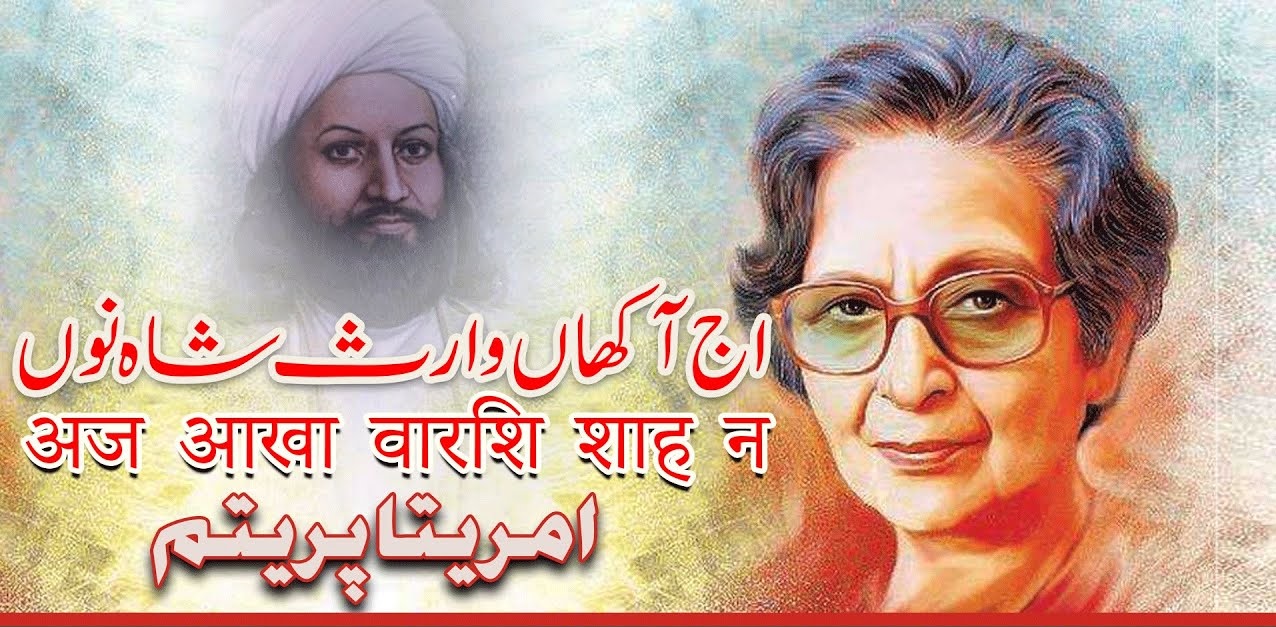Aaj Akhaan Waris Shah Nu
Aaj Akhaan Waris Shah Nu
A Reflection on the Legacy of Waris Shah
Introduction
“Aaj Akhaan Waris Shah Nu,” a poignant poem by the renowned Punjabi poet Amrita Pritam, serves as a heartfelt homage to Waris Shah, the legendary 18th-century Punjabi poet and Sufi mystic. This iconic work captures the essence of grief, longing, and the collective pain of the Punjabi people, especially in the context of the tragic events surrounding the Partition of India in 1947. In this article, we will explore the themes, significance, and enduring legacy of this powerful poem, along with its impact on Punjabi literature and culture.
Waris Shah: The Poet
Waris Shah (1722–1798) is celebrated as one of the greatest Punjabi poets, primarily known for his epic poem “Heer Ranjha.” His work embodies the rich cultural tapestry of Punjab, addressing themes of love, loss, and the human experience. Waris Shah’s poetry is characterized by its lyrical beauty, deep emotional resonance, and philosophical depth, making him a beloved figure in Punjabi literature.
The Context of “Aaj Akhaan Waris Shah Nu”
Written in the aftermath of the Partition, “Aaj Akhaan Waris Shah Nu” emerges from a period of profound trauma and upheaval. The Partition of India resulted in the displacement, violence, and suffering of millions, particularly in Punjab, where communities were torn apart along religious lines. Amidst this chaos, Amrita Pritam’s poem seeks to invoke the spirit of Waris Shah, calling upon him to witness the pain and sorrow of his people.
English Translation
Today, I call upon Waris Shah,
To witness the agony of my people.
Today, I call upon Waris Shah,
To tell him about the stories of separation.
How the heart breaks when lovers part,
And how the rivers flow with the tears of the heart.
Where are the voices of the lovers?
Where is the pain of separation?
Today, I call upon Waris Shah,
Let the world know of our suffering.
Roman Script
Aaj akhaan Waris Shah nu,
Sade lokan di takleef dekh.
Aaj akhaan Waris Shah nu,
Jiddaan de vichadiyan di kahani das.
Jiven dil tutda jadon yaar judde,
Te jiven nadiyaan diyan beh rahe ne dil de aansu.
Kithon ne yaaran di awaaz?
Kithon hai judai da dard?
Aaj akhaan Waris Shah nu,
Duniya nu sade dukh da pata lagge.
Punjabi (Gurmukhi Script)
ਅੱਜ ਅਖਾਂ ਵਾਰਿਸ ਸ਼ਾਹ ਨੂੰ,
ਸਾਡੇ ਲੋਕਾਂ ਦੀ ਤਕਲੀਫ਼ ਦੇਖ।
ਅੱਜ ਅਖਾਂ ਵਾਰਿਸ ਸ਼ਾਹ ਨੂੰ,
ਜਿਦਾਂ ਦੇ ਵਿਛੜਿਆਂ ਦੀ ਕਹਾਣੀ ਦੱਸ।
ਜਿਵੇਂ ਦਿਲ ਟੁੱਟਦਾ ਜਦੋਂ ਯਾਰ ਜੁੱਡੇ,
ਤੇ ਜਿਵੇਂ ਨਦੀਆਂ ਦੀਆਂ ਬਹ ਰਹੀਆਂ ਹਨ ਦਿਲ ਦੇ ਅੰਸੂ।
ਕਿੱਥੇ ਹਨ ਯਾਰਾਂ ਦੀ ਆਵਾਜ਼?
ਕਿੱਥੇ ਹੈ ਵਿਛੋੜੇ ਦਾ ਦਰਦ?
ਅੱਜ ਅਖਾਂ ਵਾਰਿਸ ਸ਼ਾਹ ਨੂੰ,
ਦੁਨੀਆ ਨੂੰ ਸਾਡੇ ਦੁਖ ਦਾ ਪਤਾ ਲੱਗੇ।
Themes of the Poem
1. Longing and Grief
At its core, “Aaj Akhaan Waris Shah Nu” expresses a deep sense of longing for the lost love and humanity that Waris Shah’s poetry encapsulated. Pritam’s words evoke the anguish of separation, both in personal relationships and the larger context of societal disintegration. The poem is a cry for solace in the face of unbearable loss, as the poet pleads for Waris Shah to bear witness to the suffering of the people.
2. Cultural Identity and Heritage
Through the invocation of Waris Shah, Pritam connects contemporary pain with the rich legacy of Punjabi culture. The poem serves as a reminder of the enduring power of poetry and storytelling in preserving cultural identity. Pritam urges her readers to remember their roots and embrace their heritage even in times of adversity.
3. Collective Pain and Suffering
The poem resonates with the collective pain experienced by the Punjabi community during the Partition. Pritam’s heartfelt plea to Waris Shah symbolizes a larger call for empathy and understanding in a fractured society. By addressing Waris Shah, the poet emphasizes the need for a collective reckoning with the past and the importance of healing.
The Poem’s Impact
“Aaj Akhaan Waris Shah Nu” has left an indelible mark on Punjabi literature and culture. It has been recited and performed across various platforms, becoming a symbol of resilience and hope. The poem’s powerful imagery and emotional depth continue to resonate with audiences, inspiring artists, musicians, and writers.
In addition to its literary significance, the poem serves as a catalyst for discussions around identity, belonging, and the impact of historical events on contemporary society. Pritam’s poignant words remind us of the importance of remembrance and the need to confront the past to forge a path toward healing and reconciliation.
Conclusion
Amrita Pritam’s “Aaj Akhaan Waris Shah Nu” stands as a powerful tribute to the enduring legacy of Waris Shah and the rich cultural heritage of Punjab. Through her evocative language and deep emotional resonance, Pritam captures the collective pain of her people while celebrating the timeless power of poetry. This poem serves not only as a reflection on the past but also as a beacon of hope for the future, urging us to remember our roots, embrace our cultural identity, and seek solace in the shared human experience. In the words of Pritam, the call to Waris Shah transcends time, reminding us that poetry has the power to heal and unite, even in the darkest of times.


